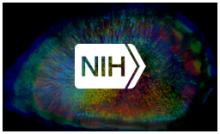
Please join us for two virtual NIH BRAIN Initiative meetings on Tuesday, January 26, 2021 and Wednesday, January 27, 2021. Videocast will be available for the BRAIN Neuroethics Working Group meeting and for the open session of the BRAIN Multi-Council Working Group meeting.
Neuroethics Working Group meeting – Tuesday, January 26, 2021
Next week, the Neuroethics Working Group (NEWG) will hold its eleventh meeting. Input from members of the NEWG helps to ensure that neuroethics is fully integrated into the BRAIN Initiative. The meeting will feature a presentation on emerging ethics themes within BRAIN by Dr. Saskia Hendriks from the NIH Department of Bioethics. Then, the group will discuss plans for potential neuroethics workshops on several topics, including neural data privacy, ensuring inclusivity, and others. Lastly, in the context of existing themes within the BRAIN portfolio and potential emerging neuroethics topics of interest, the NEWG will revisit themes outlined in the BRAIN 2.0 neuroethics report.
The meeting will take place from 12:00 PM - 3:20 PM (ET) and anyone can tune in live via videocast. For more details, please view the NEWG webpage.
Multi-Council Working Group meeting – Wednesday, January 27, 2021
The next day, the Multi-Council Working Group (MCWG) will convene its eighteenth meeting to discuss the current state of BRAIN and the Initiative’s future. The meeting will feature updates from Dr. John Ngai, NIH BRAIN Initiative Director, and a presentation on training, inclusion, and equity (TIE) efforts by Drs. Jay Churchill and Michelle Jones-London. There will be a presentation on approaches to diversifying the scientific workforce by Dr. Marie Bernard, Deputy Director of the National Institute on Aging (NIA) and acting NIH Chief Officer for Scientific Workforce Diversity, followed by a discussion on how the BRAIN Initiative will continue to promote these efforts. Lastly, NIH staff will present two concepts for funding: (1) short courses on neuroscience skills development; and (2) projects for building infrastructure for reagent development, production, and use at minority-serving and IDeA-eligible institutions, which will expand upon a transformative project funding opportunity aimed to create “A Cell Type-Specific Armamentarium for Understanding Brain Function and Dysfunction” (see RFA-MH-20-556), as outlined in the BRAIN 2.0 neuroscience report.
The open session will take place from 12:00 PM - 3:25 PM (ET) and can be viewed live via videocast. To learn more, please see the MCWG webpage. Meeting summaries and archived videocasts of both events will be made available in the near future.
